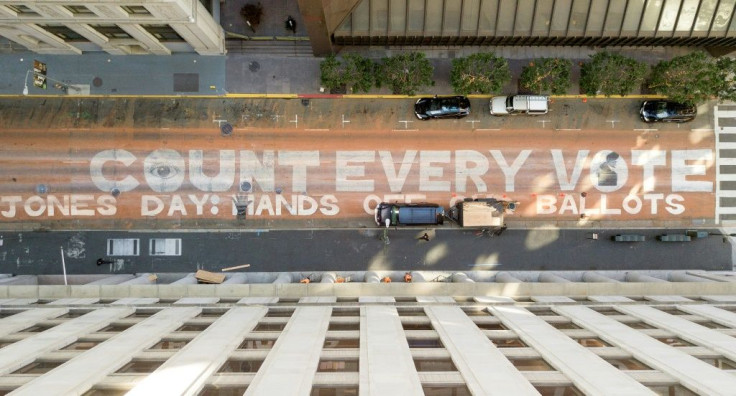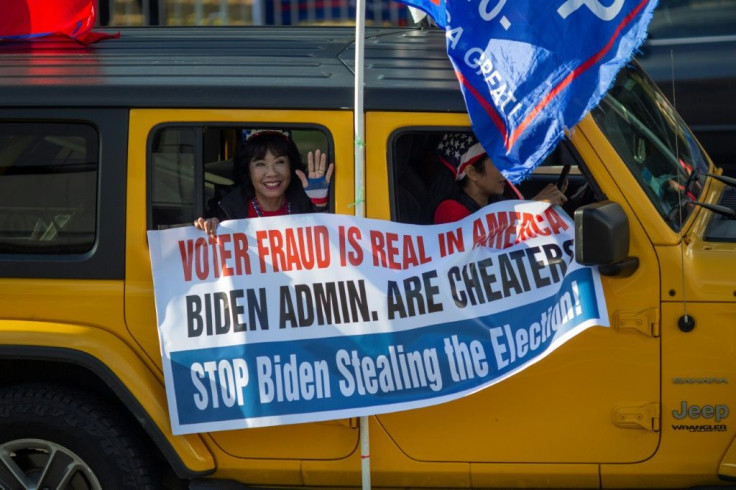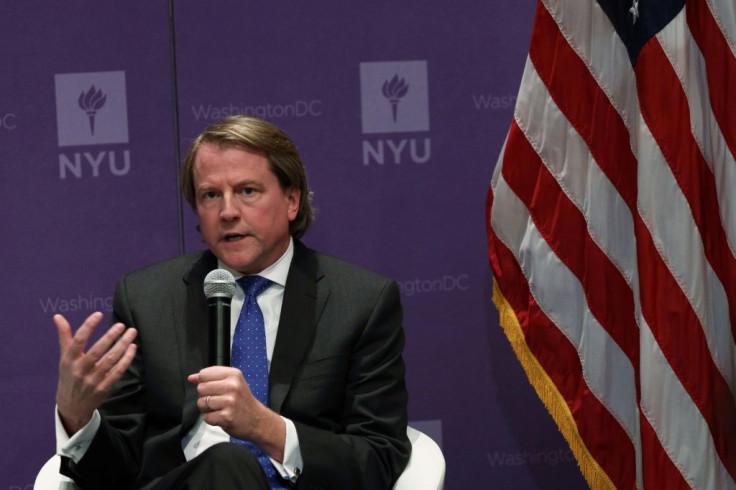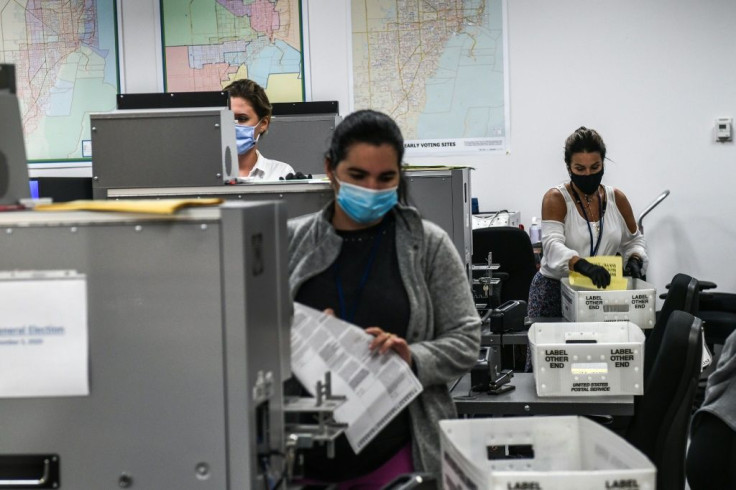Trump Election Lawyers On Trial In Court Of Public Opinion
Written in giant capital letters, it's nearly impossible to miss the message emblazoned along a San Francisco street: "Jones Day: Hands off our ballots."
The Jones Day law firm on the receiving end of the painted directive is working on US President Donald Trump's legal crusade against the outcome of last week's presidential election.
The outgoing president and most Republican allies have so far refused to recognize the win of Democratic President-elect Joe Biden, decrying massive "fraud" and launching a dozen complaints in several key states.
But the judicial fight is lacking one important element: any evidence pointing to such fraud.

That fact has put the lawyers of Jones Day and other firms involved in a bind, with political activists and legal colleagues alike accusing them of undermining democracy.
The anti-Trump Republican group The Lincoln Project denounced Jones Day and Porter Wright -- another law firm assisting Trump's effort -- on Twitter.
"Employees of @JonesDay & @PorterWright, do you believe your law firms should be attempting to overturn the will of the American people?"
And even other attorneys have challenged their peers' involvement.

"The deeper they venture down the Trump conspiracy rabbit hole, armed with nothing more than futile lawsuits premised on flimsy evidentiary or legal bases, the more their professional reputations and law licenses are at risk," lawyers Bradley Moss and Joanne Molinaro warned in an opinion piece in The Atlantic.
The American Bar Association's code of ethics prohibits lawyers from bringing "frivolous" assertions -- claims without legal merit or evidence -- before a court, according to Joshua Davis at the Center for Law and Ethics at the University of San Francisco.
"A lot of these (Trump election) cases... seem to come very close to the line and maybe cross the line into being frivolous," according to Davis.

It is rare, however, for judges or bars to impose sanctions for violating this standard, and Davis told AFP it is unlikely they would want to insert themselves into "that sort of a political mess" now.
Fordham University law professor Bruce Green has a different dispute with the cases.
"I think the real criticism is not so much that they're frivolous," he said, "but that they're not going to prevail."
"And even if they prevail, they wouldn't change the election result," Green said, noting that the lawyers were likely motivated by their allegiance to the Republicans, with their work boosting the party's fundraising efforts amid the polarizing legal battle.

That doesn't mean those motives can't be questioned, Green said.
"Why are they using their professional talent on these cases, rather than something more worthy of their time and abilities?" he asked.
"But that's not a legal question."
The two firms have defended their positions.
"Porter Wright has a long history of election law work during which we have represented Democratic, Republican and independent campaigns and issues," it told AFP in an email.
In a statement, Jones Day explained the firm is not involved "in any litigation alleging voter fraud," but simply representing the Pennsylvania Republican Party in "an important and recurring rule-of-law question under the US Constitution" relating to mail-in ballots.
Pennsylvania is a linchpin in Trump's efforts to cast doubt on the electoral process -- and where courts are reviewing many Democratic voters' choice to mail in their ballots due to the coronavirus pandemic.
Several Jones Day lawyers have served in the Trump administration, including former White House legal advisor Don McGahn.
And the firm has donated more than $4 million to the Republican Party this year, according to the Federal Election Commission.
"I don't think it's money," Stephen Gillers, a legal ethics professor at New York University, speculated. "(Jones Day) does not need this business."
"I think some of what it does may be driven, in part, by ideological sympathies on the part of the lawyers," he said, given some partners' relationship to the Republican Party.
Their work on the case is "perfectly legal and ethical," he said.
"The problem that Jones Day faces is that it can hurt its reputation," Gillers said, noting that clients or potential hires may be turned off after this episode.
Trump's legal battles on this front are unusual -- and for some, alarming -- in a country accustomed to mostly smooth transfers of power, even between political rivals.
But, "there are 1.3 million lawyers in the United States," Gillers said. "If Jones Day turned down the work, another firm would accept it."
© Copyright AFP 2024. All rights reserved.





















